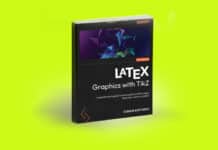Intel has decided to stop the production of its Atom-based Joule, Edison COM (computer-on-module) and Arduino-backed Galileo development board. The chip maker seems to have made the decision after failing to compete in the market.
Launched back in 2013 in partnership with Arduino, the Intel Galileo board was designed to give strong competition to Raspberry Pi. The company targeted growing developer community for the growth of the device.
Months after the Galileo, Intel brought Edison to the market in 2014 with the vision of powering wearable and home-based IoT devices. Joule was also launched last year to expand the company’s presence in the Internet of Things (IoT) market — taking on Raspberry Pi.
Saying goodbye with no particular reason
Intel didn’t announce any specific reasons for the discontinuation. However, it released product change notifications to announce the latest decision.
The entire IoT-centered product lineup was developed to help Intel avoid missing innovation that it lost to smartphone chipmakers like Mediatek and Qualcomm. However, the range had the caliber to capture the market share over time.
The top-end model in the series, the Intel Joule, was even as powerful as some of the affordable notebooks with a high-end Atom processor, 4GB of RAM and 4K video support. The board was fully compatible with Linux platform and recently received Ubuntu support.
Departure of Curie and Recon Jet also in plans
Alongside the development boards, Intel has discontinued Curie, the low-end compute module designed for wearables, and Recon Jet Pro smart eyewear lineup.
Moreover, developers will continue to have access to the compute modules until September 16. The company will stop shipping the units post December 16.












































































